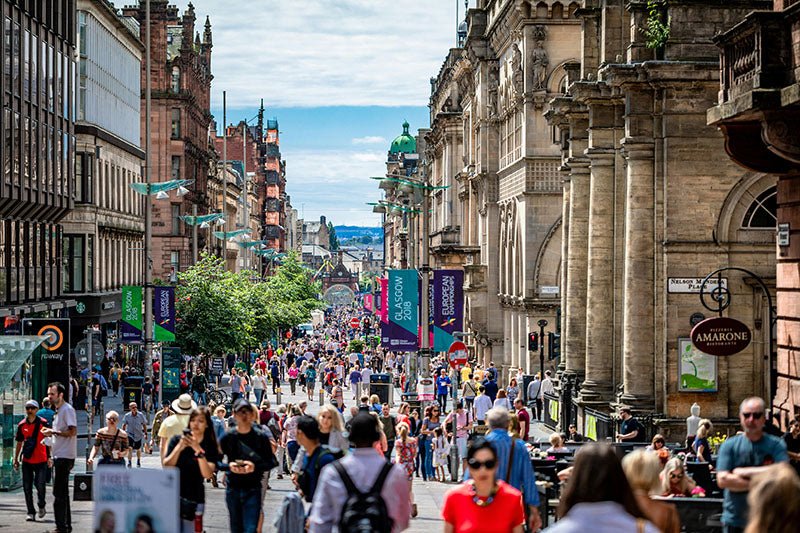Why Modern Life Makes It Harder to Relax (and What You Can Do About It)
Modern life is a whirlwind. From the moment we wake up to the moment we go to bed, it often feels like we’re being pulled in multiple directions. Emails, notifications, social media, work deadlines, family obligations – the pace is relentless, and as a result, the constant stimulation keeps our minds in alert mode.
We might feel like we get ‘little moments’ to sit back and unwind, but even those moments aren’t truly restful. Instead of being present and relaxed, our brains are often still processing to-do lists, scrolling through feeds, or anticipating the next interruption, and this chronic stress can easily leave us feeling drained.
Think of it like interrupted sleep. Someone who gets a full eight hours of deep sleep is going to be feeling fresher than someone who wakes up every hour throughout the night. The same goes for rest in our waking lives – if it’s constantly fragmented by distractions, there’s no way we’ll ever feel fully restored.
This is different from twenty-five years ago, too. As someone living this modern life, it might seem like something you just have to ‘get through’, because surely it’s always been like this. But this couldn’t be further from the truth. The inability to truly relax is an exacerbated symptom of the 21st century, specifically, and there’s a very obvious reason for it.
We’re going to look into this reason now, as well as give you a few tips on what you can do about it.
The Downside of Technology
Quite simply, the biggest reason for our modern lives feeling so relentlessly ‘on’ is the rise of digital technology – particularly smartphones and constant internet access. While technology has brought undeniable benefits, it has also fundamentally reshaped the way we live, work, and rest.
Twenty-five years ago, of course, we had natural stopping points in our day. Work ended when you left the office. Weekends were actually week-ends. Waiting in line or riding a bus meant staring out of the window, not checking emails or doomscrolling. In short, there were natural pauses scattered throughout the day – moments of nothingness that allowed our minds to settle and rest. Today, however, those pauses have been filled.
Every spare second is an opportunity to consume or react, and while technology has brought convenience and connection, it’s also worsened this tendency towards constant mental stimulation. Being mentally engaged all the time comes with a price, of course.
Our nervous systems were never built to process this much input, with so little downtime. The human brain evolved in an environment of rhythm – periods of activity followed by periods of rest – but what modern technology has done is flatten this rhythm, replacing our natural ebbs and flows with an unrelenting hum of information.
This has then led our bodies to stay in a low-grade state of alert, triggering the stress response far more frequently than it should. As a result, the cortisol levels in our bodies remain elevated for longer periods, leading to chronic stress, shortened attention spans, disrupted sleep, and emotional burnout.
What Can You Do About It?
So what exactly can we do about it? There are many ways in which people have begun to reclaim their attention and reintroduce rest into their lives – and the good thing is, most of them don’t require a dramatic life overhaul. One of the methods growing in popularity, for instance, is the CBD flower, which is said to help promote relaxation without the psychoactive effects of THC.
People use it in various forms – smoking, vaping, brewing it into tea – and many of the users have reported feeling less stressed and more at ease, although experiences may vary widely. Constant studies are being done to better understand the potential benefits of CBD flower, with some even stating it can support better sleep quality, help manage arthritis, mild discomfort, and reduce feelings of anxiety.
It’s important to note that research is still ongoing, and as always, it’s better to approach any new wellness method with care, but incorporating it into your routine could be a helpful way to create those moments of calm. Another helpful way might be the practice of mindfulness meditation. A lot of people might read that and let out a sigh, but until you’ve actually tried it, you won’t know how impactful it can be for your daily stresses.
Many find that starting with just a few minutes a day, perhaps guided by the best mindfulness apps or a simple breathing exercise, can make the practice far more approachable and manageable – and over time, you can build up those sessions to become even more natural and comfortable.
Cutting Out Technology
One last way to relax in modern life is by cutting down on the amount of time you spend with technology. A recent study suggests that 71% of the study’s participants reported improved mental health when taking a break from the internet, and that they’re attention span improved. This is a clear-cut sign that taking intentional breaks from tech can have a positive impact on our well-being, helping us to disconnect from all the stresses in our lives and allow our minds to rest.
That doesn’t mean you have to completely give up your devices, of course. But you can find a healthy balance that works for you – whether that’s designated tech-free times during the day, avoiding screens before bed, or switching off from work when the clock hits 5. Even small changes like this can help cultivate a greater sense of peace and presence in everyday life, so it’s worth a shot if you’re beginning to feel like your own life is weighing on top of you.
Conclusion
There are other things you can try to relax. Regular exercise is said to reduce stress hormones, spending time in nature can improve overall well-being, and even listening to calming music can help lower anxiety and create a peaceful atmosphere. The important thing, however, is that you take action and make sure you’re the one controlling your life, rather than your life controlling you. Once you’ve done this, you’ll find that you can make your way through the day with just a little more vigour.

